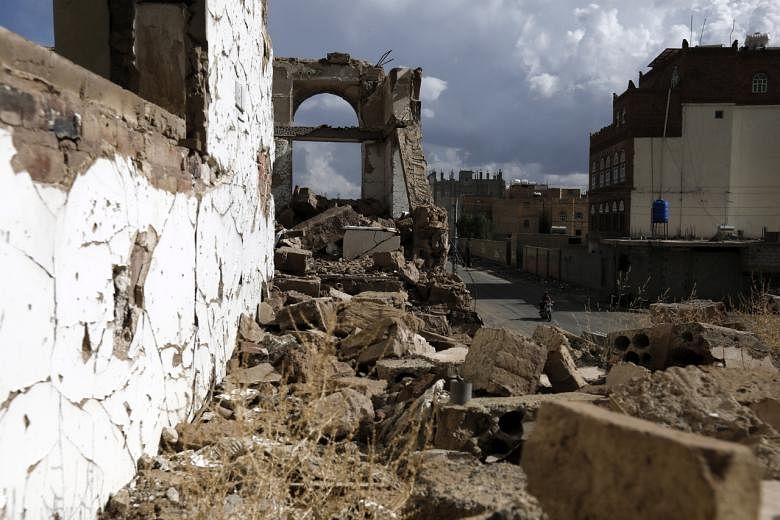NEW YORK (NYTIMES) - Despite some optimism for new talks, antagonists in Yemen's five-year-old war have basically ignored a Saudi-led unilateral ceasefire announced a week ago, UN officials said on Thursday (April 16), warning that relief money for Yemen is running out just as the coronavirus has invaded.
"Yemen cannot face two fronts at the same time: a war and a pandemic," Mr Martin Griffiths, the special UN envoy for Yemen, told the Security Council in a videoconference briefing shown on the UN website.
Mr Mark Lowcock, the UN humanitarian relief coordinator, told the council that 31 of its 41 programmes that help Yemen's 30 million people may have to shut down in a few weeks for lack of money.
The officials spoke one week after a Saudi-led coalition that has been fighting the Houthi rebels in Yemen since 2015 announced that it was halting military attacks for two weeks.
The Saudis said they hoped the pause would lead to a truce, peace talks and an opportunity to prevent the coronavirus from overwhelming Yemen, the Arab world's poorest country.
Political analysts said the Saudis saw the pandemic as an opportunity to start extricating themselves from a stalemated war that has become a quagmire and a public relations nightmare for them.
But the Houthis, who are backed by Saudi Arabia's regional rival Iran, have shown little intent to stop fighting, despite laying out their own proposals for stopping the war.
Mr Griffiths told the Security Council that he discussed with each side the phrasing of agreements on what would be the first nationwide ceasefire, new humanitarian measures and an "urgent resumption of the political process" to end the conflict.
"We expect them to agree on and formally adopt these agreements in the immediate future," he said.
Nonetheless, both he and Mr Lowcock said many areas of the country remained convulsed by attacks, just a few days after Yemen reported its first confirmed case of Covid-19, the disease caused by the coronavirus.
Mr Lowcock painted a dire picture of Yemen, where the health system has basically collapsed, most of the people face hunger or starvation, and diseases like cholera and diphtheria have periodically flourished as a direct result of the war.
He said infectious disease experts had warned that Covid-19's foothold in Yemen "could spread faster, more widely and with deadlier consequences than in many other countries".
Moreover, Mr Lowcock said, international contributions and pledges for Yemen humanitarian relief this year amount to less than a third of the US$2.6 billion (S$3.70 billion) total at this time last year.
Mr Lowcock also said that the collapse in global oil prices, an important source of Yemeni government revenue, threatened to devalue Yemen's currency, the rial, severely and that remittances home from expatriate Yemenis could fall by as much as 70 per cent in coming months.
Yemenis abroad send more than US$3 billion home each year to help their families.
"This places us in uncharted territory," he said.











